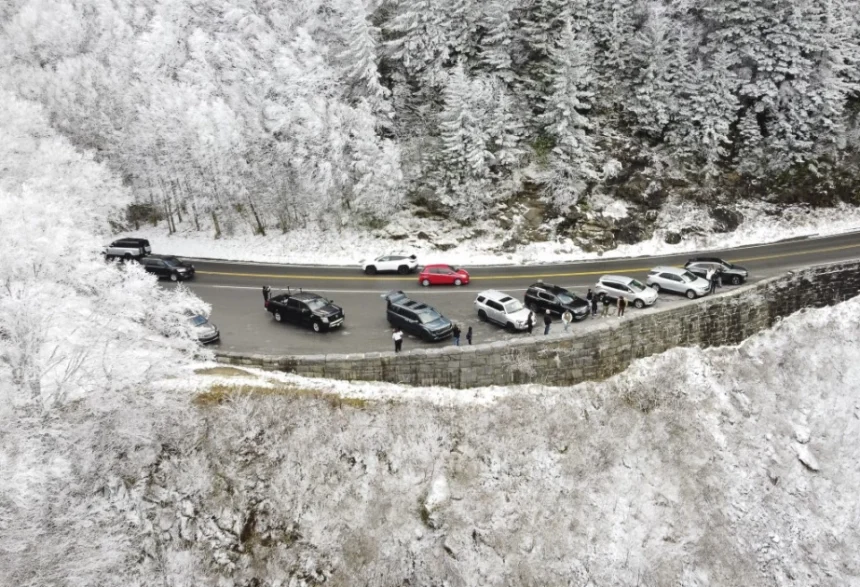Blizzard and winter storm warnings were in effect across the Midwest on Sunday, as a massive weather system was forecast to hit the United States, dumping buckets of snow and snarling transport.
American Airlines has issued a travel advisory covering 46 airports from Kansas to New Jersey as the storm is forecast to move from the middle of the United States to the East Coast.
The National Weather Service issued blizzard warnings in Kansas and Missouri, with a belt of winter storm and ice storm warnings stretching all the way to the US capital on the East Coast, putting an unusually broad 1,500-mile (2,400-kilometer) swath under immediate threat.
As the storm makes its way from west to east, a mix of freezing rain, sleet and snow was forecast in Kansas early Sunday morning.
But the latest forecast from the NWS suggested the worst was yet to come, with “heavy snowfall and wind gusts exceeding 40 mph (64 kmh)” expected in the state.
As the storm accumulates through Monday, “the snow will significantly reduce visibilities, and snowfall amounts will surpass 15 inches” — the heaviest in a decade — “which will make travel extremely hazardous, with impassable roads.”
A band of 8-14 inches is expected to be dumped from northeast Missouri through the Central Appalachians, it said.
Areas around Washington could see up to 10 inches of snow overnight Sunday into Monday, with “significant accumulations, hazardous travel and closings” likely, according to the Washington Post.
Nearly 70 million people nationwide are under some sort of weather alert, according to broadcaster CNN.
– Travel disruptions –
The first major storm of 2025 was already wreaking havoc on travel, with Kansas City International Airport announcing closure of its flight operations Saturday “due to rapid ice accumulation.”
Flight operations resumed later after airfield runways and taxiways were treated, Kansas City mayor Quinton Lucas said in a social media post.
With the jet stream diving southward, temperatures are expected to plunge, in some places to below zero degrees Fahrenheit (-18 degrees Celsius), while strong wind gusts will compound the dangers.
The mercury could sink tens of degrees below seasonal norms down to the US Gulf Coast. Before then, severe thunderstorms are expected across the lower Mississippi Valley, the NWS forecast.
Another major concern is freezing rain and sleet expected from Kansas eastward to Kentucky and Virginia, setting the stage for thick ice to coat roads, making travel hazardous, bringing down trees and electricity lines, and potentially leaving millions of customers without power during a cold snap.
The NWS warned that it expected widespread tree damage and “long-lasting power outages” from Kansas to the central Appalachian Mountains.
Conditions could prove especially perilous in the Appalachians, where a deadly hurricane in late September devastated communities and ravaged multiple southeastern states including Kentucky.
Many of those communities are still recovering from the effects of that hurricane.
The new storm “will likely cause significant disruption and dangerous conditions on our roads and could cause significant power outages just 24 hours or so before it’s going to get really cold in Kentucky,” Governor Andy Beshear told an emergency meeting.
The governors of Kentucky, Missouri and Virginia have declared a state of emergency in their states, and they took to social media to warn residents to expect hazardous weather this weekend.



